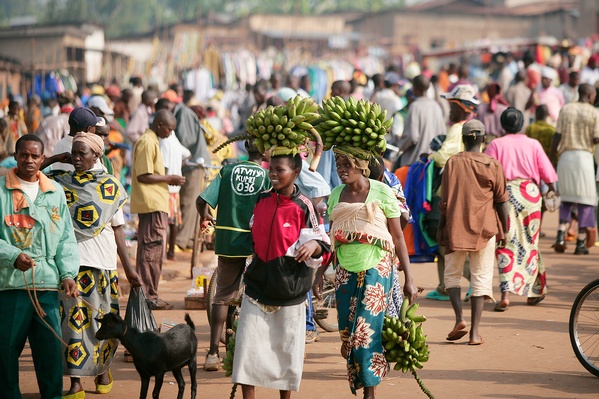Help Africa’s smallholder farmers exploit opportunities and manage risks
The global food system is under acute and rising pressure – and Africa’s farmers are feeling its full force. There is still more than enough food in the world to feed everyone. But population and economic growth as well as the search for low- carbon energy sources are driving up demand for arable land, while climate change, ecological constraints and lower levels of productivity growth in agriculture are limiting food supply.
While these emerging strains in the global food system offer Africa some opportunities, they also carry very large risks. Higher food prices could create incentives for African governments to invest in agriculture and raise productivity, or they could lead to a dramatic worsening of poverty and malnutrition among vulnerable populations. Africa’s vast untapped potential in agriculture could become a source of rural prosperity and more balanced economic growth, or it could act as a magnet for more speculative investments, land grabs and the displacement of local communities.
Carbon markets might open up opportunities for small farmers to benefit from climate change mitigation efforts in rich countries, though the benefits have so far proven limited and the future of these markets remains uncertain. What is certain is that Africa’s farmers will bear the brunt of dangerous climate change, with drought and unpredictable rainfall patterns reinforcing rural poverty and undermining food systems.
In a recent policy paper, Africa Needs a Green Revolution, the Africa Progress Panel set out an agenda for change:
• Put smallholder farmers and agriculture productivity at the centre of national food security and nutrition strategies, with a focus on women farmers;
• Strengthen social protection and food safety nets;
• Develop risk management and adaptation systems to prepare for climate change;
• Ensure that Africa’s land and water resources are sustainably managed to provide food and nutrition security and livelihoods;
• Protect Africa’s farmers against large-scale land purchases that do not protect the rights of communities to natural resources or promote local or national food security;
• Focus policies on household enterprises to reduce poverty and dependence on agriculture;
• Strengthen early warning and response systems for food security crises.

